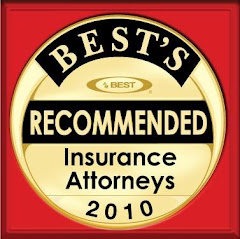BLAINE, Kan. – Following the death of two workers from the collapse of a cell tower they were dismantling March 25, the U.S. Department of Labor's Occupational Safety and Health Administration has cited Wireless Horizon Inc. for two willful and four serious safety violations. OSHA placed the company in the Severe Violator Enforcement Program* following the incident. So far in 2014, 11 workers have lost their lives nationwide in the communication tower industry; and 13 deaths occurred in 2013.
No more falling workers. Disturbing trend in communication towers-related workder deaths
"Two families have lost their loved ones in a preventable tragedy. No one should ever have to endure that loss. Inspecting and ensuring equipment is in good working order is a common-sense safety procedure that stop injuries and fatalities," said Dr. David Michaels, assistant secretary of labor for occupational safety and health. "OSHA expects tower owners and operators, such as Wireless Horizon, to protect their workers on job sites in this hazardous industry by increasing training and implementing all known safety precautions. Our nation's growing need for telecommunications should not cost workers their lives."
The tower technicians, ages 25 and 38, were using a load-lifting gin pole attached to the side of the tower with a wire rope sling. The sling failed, causing the gin pole to fall and bring the tower down with it. One of the employees was above the gin pole near the top of the tower, and the second employee was approximately 20 feet below the pole. Both workers fell to the ground during the collapse. As the tower fell, it also struck an adjacent tower, causing it to crumble as well. One of the employees had been with the company two months, while the other employee had only been working there for five months when the incident occurred. OSHA's inspection found that the equipment the company provided the workers was in poor repair. The company did not use proper engineering plans to ensure the workers were protected against this type of collapse.
OSHA's investigation found that Wireless Horizon failed to inspect the wire rope slings prior to use and provide protection to the slings when rigged over sharp objects. These failures resulted in the issuance of two willful violations. A willful violation is one committed with intentional, knowing or voluntary disregard for the law's requirements, or with plain indifference to worker safety and health.
Wireless Horizon also failed to conduct an engineering survey and develop a rigging plan prior to beginning the demolition process. Additionally, the company did not provide the technicians a load chart for the gin pole in use or operator manuals. OSHA issued four serious citations for these violations. A serious violation occurs when there is substantial probability that death or serious physical harm could result from a hazard about which the employer knew or should have known.
OSHA has proposed penalties of $134,400 for the company, based in St. Peters, Missouri. Wireless Horizon employs approximately 60 workers, including four that were present at the Blaine job site on the date of this fatal incident.
To view current citations, visit http://www.osha.gov/ooc/citations/WirelessHorizonInc_964654_0919_14.pdf*.
This company has been inspected by OSHA on two previous occasions since 2005, and OSHA issued multiple serious violations both times.
OSHA is collaborating with the National Association of Tower Erectors and other industry stakeholders to ensure that every communication tower employer understands their responsibility to protect workers performing this very dangerous work. OSHA has created a Web page targeting the issues surrounding communication tower work to help employees and employers better understand the risks of tower work and how to prevent injuries and fatalities in this industry.
Wireless Horizon has 15 business days from receipt of the citations to comply; request an informal conference with OSHA's area director in Wichita, Kansas, or contest the findings before the independent Occupational Safety & Health Review Commission.
To ask questions; obtain compliance assistance; file a complaint or report workplace hospitalizations, fatalities or situations posing imminent danger to workers, the public should call OSHA's toll-free hotline at 800-321-OSHA (6742).
Under the Occupational Safety and Health Act of 1970, employers are responsible for providing safe and healthful workplaces for their employees. OSHA's role is to ensure these conditions for America's working men and women by setting and enforcing standards, and providing training, education and assistance. For more information, visit http://www.osha.gov.
If you or a loved one are victim of a
Connecticut Construction Accident please call our office for a free discussion on your rights under our Connecticut Worker's Compensation Laws.








